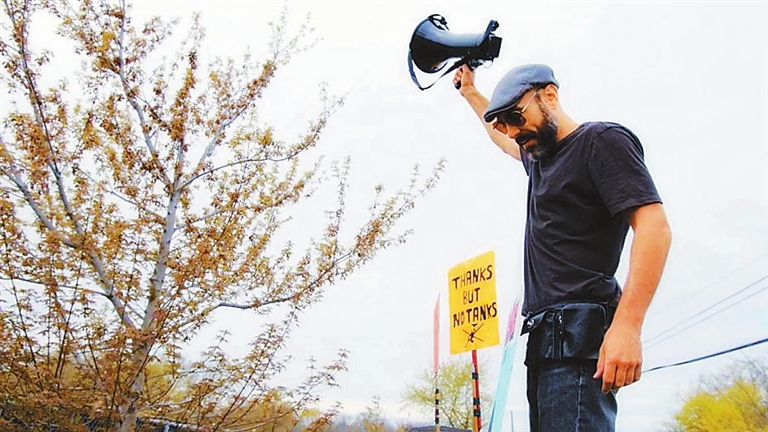
Hot Doc Film Festival is North America’s largest documentary film fest that happens every year in Toronto. This year the Hot Doc Film Festival ran online from May 28 to June 6, with selected titles remaining available to watch until Wednesday June 24. Festival details and a complete title list are available at www.hotdocs.ca. Starring: Phil Demers Director: Nathalie Bibeau AT the heart of “The Walrus and the Whistleblower,” the new documentary portrait of ex-animal trainer Phil Demers, is a hashtag: #SaveSmooshi. In 2012, Demers quit his job at Marineland in Niagara Falls, Canada, after watching too many animals suffer from mistreatment, like being forced to swim in chlorinated water until they were covered in chemical burns. (The amusement park’s vet, he recalls, couldn’t drug the animals enough to provide relief.) Demers has spent the last near-decade not only decrying Marineland’s abusive practices and fighting off their legal harassment of him, but demanding he be reunited with the park’s first walrus, Smooshi. Marineland is one of the economically depressed area’s biggest employers, so Demers has only gotten by on odd jobs since his resignation. Female walruses range from 900-1,800 pounds (408-816 kg), but Demers is never challenged on how he might feed and care for Smooshi if he were to ever obtain guardianship of her. Unfortunately, such kid-glove treatment is par for the course for director Nathalie Bibeau’s documentary, which won the audience award at this year’s (virtual) Hot Docs Festival and will be released in October. Viewers expecting a hard-hitting exposé like 2013’s “Blackfish,” which pierced SeaWorld’s wholesome image and cost the company tens of millions of dollars, will find a passionate but frustratingly superficial document in this follow-up. The “Walrus and the Whistleblower” is, above all and to its detriment, a character study. Demers is the childhood best friend of Bibeau’s brother, and he is, in many ways, a cogent and persuasive authority on Marineland’s ill treatment of its animals. The filmmaker doesn’t shy away from his edges, like his pugnacious, showman-esque bent (“I’m their nightmare,” he tweets) or his apparent messianic complex (“no one else is going to save Smooshi,” he declares). The film is also a compelling depiction of the mental toll borne by a David fending off Goliath’s legal army, and how anticlimactic even huge legislative victories can feel — and what little difference they can make in day-to-day conditions. Demers’ resilience is genuinely impressive. But Bibeau takes too much at her subject’s word, seldom pushing him when her film needs it most. Demers has presumably been unwelcome at Marineland since his departure, so it’s unclear why Smooshi would be best served by a trainer she hasn’t seen in eight years. “The Walrus and the Whistleblower” is, at least, a visually minded documentary. An opening image of Demers lying in a tub, unnaturally still, evokes the animals’ plight. There’s plenty of “home video”-style footage of his tenure at Marineland, as well as his later stints picketing his former workplace alongside other animal-rights activists, who have apparently been protesting the park for decades. There’s plenty of video of the Marineland animals in seemingly various states of distress, but it’s strangely vague when they were taken, by whom and under what conditions. The biggest head-scratcher, however, has to do with the film’s relatively benign approach to Holer, whose mistreatment of animals extends far beyond the sea mammals at Marineland and seems to be the tip of the iceberg of his wrongdoings. (A 2013 Vice report bluntly titled “Marineland Is a Hellhole” notes that Holer evicted all the residents of a trailer park, comprising 47 families, to build an expansion of Marineland, which led to one woman committing suicide on the day she was to become homeless.) Bibeau doesn’t mention any of this, and when Demers learns of Holer’s sudden death, we see him mostly guilt-ridden. “I pursued a dying man,” he says in tears. It’s a perfect encapsulation of this incomplete-feeling film, which inadvertently illustrates how empathy without balance can obscure truth. (SD-Agencies) | 
